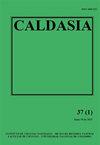Vacíos de información espacial sobre la riqueza de mamíferos terrestres continentales de Colombia
IF 0.3
4区 生物学
Q4 PLANT SCIENCES
引用次数: 7
Abstract
Despite recent advances in the compilation of primary biodiversity data, biases in the quality and the accessibility of the information difficult the inference of biodiversity spatial patterns. We present the first systematic analysis on the spatial distribution of terrestrial wild mammal records for continental Colombia. By using multiple databases, we identified the geopolitical areas and ecoregions from the country with the biggest information gaps at the order level regarding the number of species recorded vs the number of expected species. In addition, we carried out a complementarity analysis to establish priority sampling areas that maximize the recording of mammal species in the country. Most orders (70 %) show representativeness lower than 50 % in at least 40 % of the departments y 60 % of the studied ecoregions. Also, we found that the temporal coverage in grids of 50 * 50 km tends to below, with an average lower than four sampled years from 1950 to 2019. The complementary analysis shows several areas where sampling would maximize the record of new species at the national level. These areas include tropical forests of the Amazonian region in the limits between Caqueta and Amazonas, the Guyana region, as well as savanna ecosystems from Vichada, Casanare, and Arauca. We advocate for the definition of sampling prioritization schemes for both isolated and relatively unknown areas, as well as areas under high human pressure that could suffer from species losses in the short term.关于哥伦比亚大陆陆地哺乳动物财富的空间信息空白
尽管生物多样性原始数据的编制取得了一定的进展,但信息质量和可及性方面的偏差给生物多样性空间格局的推断带来了困难。我们首次对哥伦比亚大陆陆生野生哺乳动物记录的空间分布进行了系统分析。通过使用多个数据库,我们确定了该国在物种记录数量与预期物种数量方面存在最大信息差距的地缘政治区域和生态区域。此外,我们还进行了互补分析,以确定在该国最大限度地记录哺乳动物物种的优先采样区域。大多数订单(70%)在60%的研究区域中至少40%的部门中代表性低于50%。1950 - 2019年,50 * 50 km栅格的时间覆盖度呈下降趋势,平均低于4个采样年。补充分析表明,在几个地区取样可以最大限度地在国家一级记录新物种。这些地区包括位于卡克塔和亚马逊州之间的亚马逊地区的热带森林、圭亚那地区,以及来自维查达、卡萨纳雷和阿劳卡的稀树草原生态系统。我们提倡在孤立和相对未知的地区,以及在高人类压力下可能在短期内遭受物种损失的地区,定义采样优先方案。
本文章由计算机程序翻译,如有差异,请以英文原文为准。
求助全文
约1分钟内获得全文
求助全文
来源期刊

Caldasia
PLANT SCIENCES-ZOOLOGY
CiteScore
1.30
自引率
16.70%
发文量
28
审稿时长
24 weeks
期刊介绍:
La revista está orientada a publicar contribuciones originales escritas en español o inglés relacionadas con la documentación, comprensión y conservación de la diversidad biológica. La revista contempla el tema de la biodiversidad en un sentido amplio y por tanto incluye trabajos en áreas como botánica, zoología, ecología, biodiversidad, biogeografía, taxonomía, sistemática, conservación, y disciplinas afines.
 求助内容:
求助内容: 应助结果提醒方式:
应助结果提醒方式:


